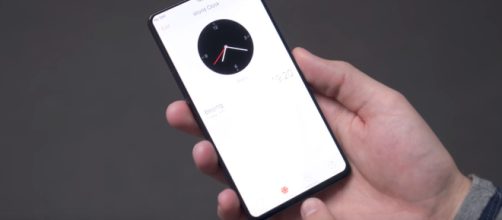Coming into Mobile World Congress 2018, many people were expecting Samsung's reveal of the new Galaxy S9 to steal the thunder away from all other cell phone manufacturers, but Vivo has truly been an underdog champion as of late.
At the start of this year, they unveiled the Vivo X20 Plus UD with the first, in-display fingerprint reader; beating out the two biggest competitors in the market, Apple, and Samsung, both of which had been reportedly trying to integrate such technology into their iPhone and Galaxy lines respectively.
Fast forward to MWC 2018 and Vivo has taken the curtain off of their Vivo Apex concept phone which shows just how few compromises you actually need to take to make a bezel-less smartphone in 2018.
No compromises in the concept
It feels like 2018 has given us many smartphones with huge shortcomings either with the bezels (or notch), the loss of the headphone jack, older chipsets, or the everpresent bloat in custom Android builds. In a press release, Vivo states that the Apex concept "sets new benchmarks for future smartphone design, featuring the world’s highest screen-to-body ratio and Vivo’s ground-breaking Half-Screen In-Display Fingerprint Scanning Technology." Looking at the videos that have been released so far, it seems that they are genuinely raising the bar on what a smartphone can be.
The first thing you'll notice when you look at the phone is that it is almost entirely screen.
The Vivo Apex manages its impressive screen-to-body ratio by making innovations, not compromises. For instance, you won't see a notch or top bezel with the typical sensors and selfie cameras, instead, you'll have to look on top of the device for these components.
The 8MP selfie camera is now housed inside the device and only pops out on top whenever the camera is activated either through the built-in camera app or an app like Snapchat or Instagram. If you were wondering about the speed, Vivo states that it takes about 0.8 seconds for the selfie camera emerge and retract. Even though it is much slower than other smartphones, seeing the camera in action truly seems like something brought back from the future.
Another way that Vivo has decreased its bezel size is by getting rid of the top-speaker which is normally used for phone calls. They have replaced it with proprietary technology which they call Screen SoundCasting Technology. How this works is by sending vibrations throughout the top of the display, essentially making the entire top half of the display the speaker.
While this is an impressive solution, it is not the first time that we've seen this technology on a smartphone. It can also be found on the first bezel-less phone released in 2016, the Xiaomi Mi Mix. Although with its successor, the Mi Mix 2, Xiaomi opted to include a traditional earpiece instead of the screen vibration technology because some consumers were not as happy with the new technology.
Nevertheless, hands-on videos of the Apex seem to have a generally positive reaction to Vivo's implementation. Vivo also included in their statement that "compared to other audio solutions for bezel-less smartphones, [Screen SoundCasting Technology] conserves power, reduces sound leakage, and optimizes low to high pith (sic) sound for a better and more balanced audio experience." We'll just have to wait to see the final device and subsequent reviews to verify those claims. Oh, and this device still manages to squeeze in a headphone jack in case the screen vibration isn't loud or clear enough for you.
The new rising star in the smartphone marketplace
Vivo certainly has set itself up as one of the most promising players in an increasingly crowded field, garnering a lot of positive press for its recent innovations with one of the most prominent YouTube tech-reviewers recently tweeting his regret for not being able to attend Mobile World Congress 2018 solely due to missing out on making a hands-on video of the device.
It'll be interesting to see what the smartphone landscape will look like by the end of the year with Samsung's new Galaxy Note, rumors of Apple's new iPhone X Plus, and hopefully a full-fledged release from Vivo in the spirit of the Apex concept.
Dear VIVO
— Marques Brownlee (@MKBHD) February 26, 2018
I didn’t make it to Barcelona this year, and now I deeply regret it
I would love to do a hands-on video with the Vivo APEX phone
Let’s make it happen ❤️ pic.twitter.com/avF2KfROZ6


